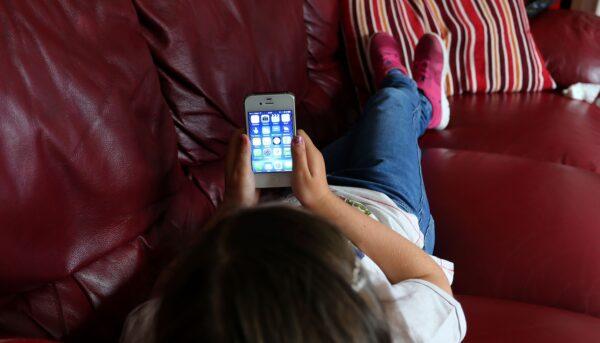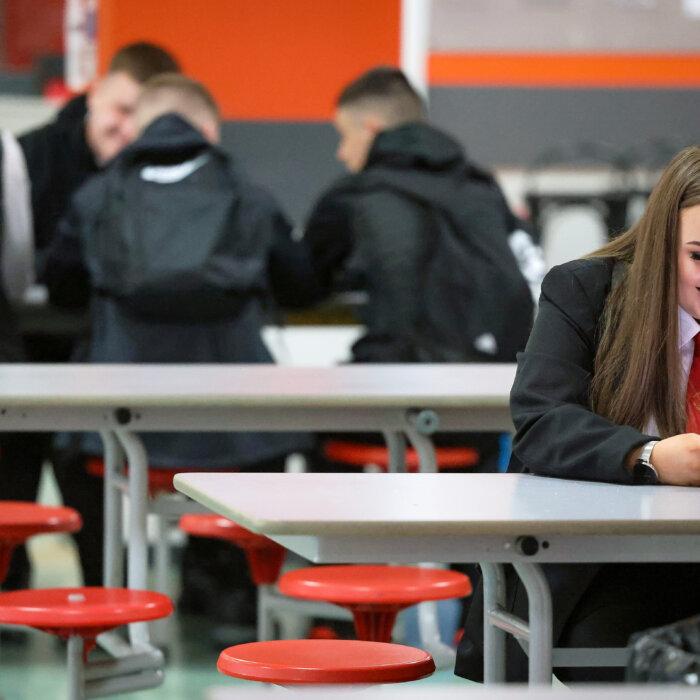MP Miriam Cates has compared the digital world to a “Wild West” of violence and abuse that children should be protected from, calling for legislation to ban social media for under-16s.
The Conservative MP for Penistone and Stockbridge told a Westminster Hall debate on Tuesday that the government should also “urgently” fund phone lockers for schools so that children can have a distraction-free space for learning.
Ms. Cates put forward the debate after campaigners and polls of parents have called for tighter restrictions on children accessing devices and social media.
During her opening remarks, the MP cited the work of American psychologist Professor Jonathan Haidt who has drawn connections between the rise in suicides, anxiety, and feelings of despair among young people and the ubiquity of social media and mobile phone use.
“Our kids are not OK,” Ms. Cates said.
“Since 2012, suicide rates for teenage boys in the UK have doubled. They have trebled for girls. Incidents of self-harm for 10- to 12-year-old girls have increased by 364 percent.
“Anxiety rates for the under-25s have trebled. Feelings of hopelessness, worthlessness, loneliness, and despair are growing among our youngest citizens. In just 15 years, childhood has been turned on its head,” she said.
She charted the path to this decline in well-being to an inflection point in 2010 and a sharp rise from 2014, points where social media and smart phones started to become prevalent in the lives of children.
“We must raise the legal age to use social media accounts to 16,” the MP said, suggesting it could be done with a bill amending the Online Safety Act, which Ms. Cates said in its current form “will not rescue our children.”
Locking Phones Out of Schools
In another proposal, Ms. Cates called for the government to “urgently fund phone pouches or lockers for all secondary schools, so that all our children can be free to make the most of their education.”The MP told her Commons colleagues that smartphones and social media “are highly addictive and provide a constant off-ramp to our mental focus and erode our concentration.”
“The average child gets 237 notifications a day. That is a concentration-busting, addiction-fuelling dopamine hit every four seconds of waking time.
Child-Friendly Devices
The MP also called for incentivising research to develop mobile phones that are suitable for children which offer basic functionality so they can stay in touch with family and do online banking, “but that has no internet browser or ability to install apps.”The recommendation echoes that made by campaign group SafeScreens, which says that the tech industry should take more responsibility for the problems it creates and help tackle phone addiction in children.
SafeScreens, run by children’s rights group UsForThem, is campaigning for smartphones specifically designed for under-18s to be brought to market, pre-loaded with suitable and useful apps and with automatic blocks for inappropriate content.

Ms. Skinner had, however, expressed doubt over the ability of the Online Safety Act, which was passed last year, to provide the regulation required to protect children.
‘Wild West’ of the Digital World
Ms. Cates painted a stark picture of the kind of world children are exposed to online, which governments and adults would not let them encounter in real life.She asked colleagues to imagine if “our streets were so lawless that it was unsafe for children to leave their homes,” where children witnessed beheadings and rapes or were subjected to propositions for sex or blackmail.
“Imagine if every mistake that our child made was advertised on public billboards, so that everyone could laugh and mock until the shame made life not worth living. This is not a horror movie or some imaginary Wild West; this is the digital world that our children occupy, often for hours a day,” the MP said.
“Defending children from this Wild West is not the action of a nanny state; it is a moral imperative for governments across the world,” she said.







